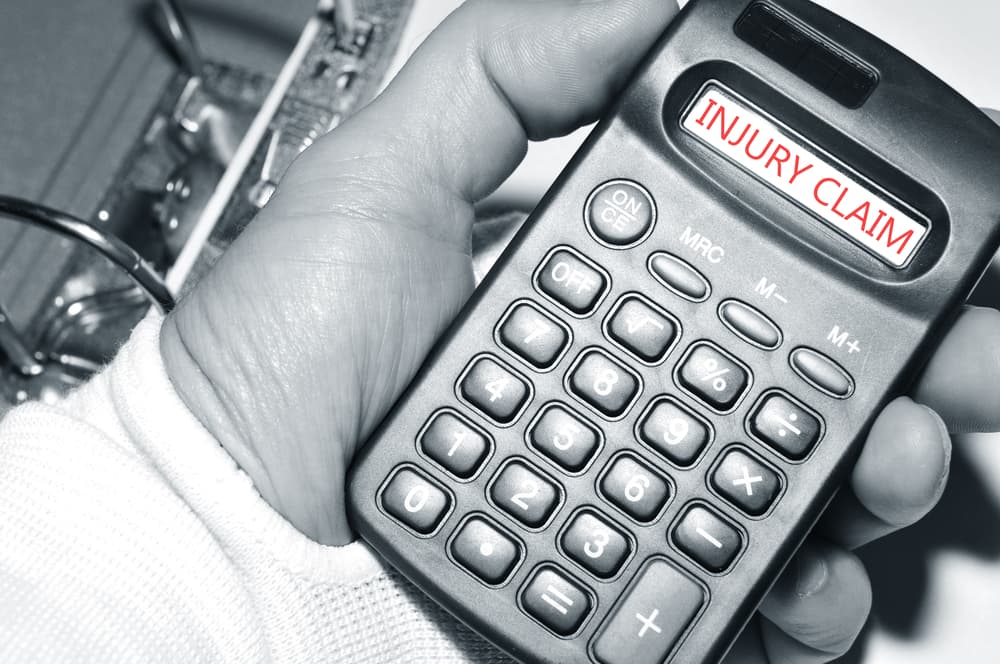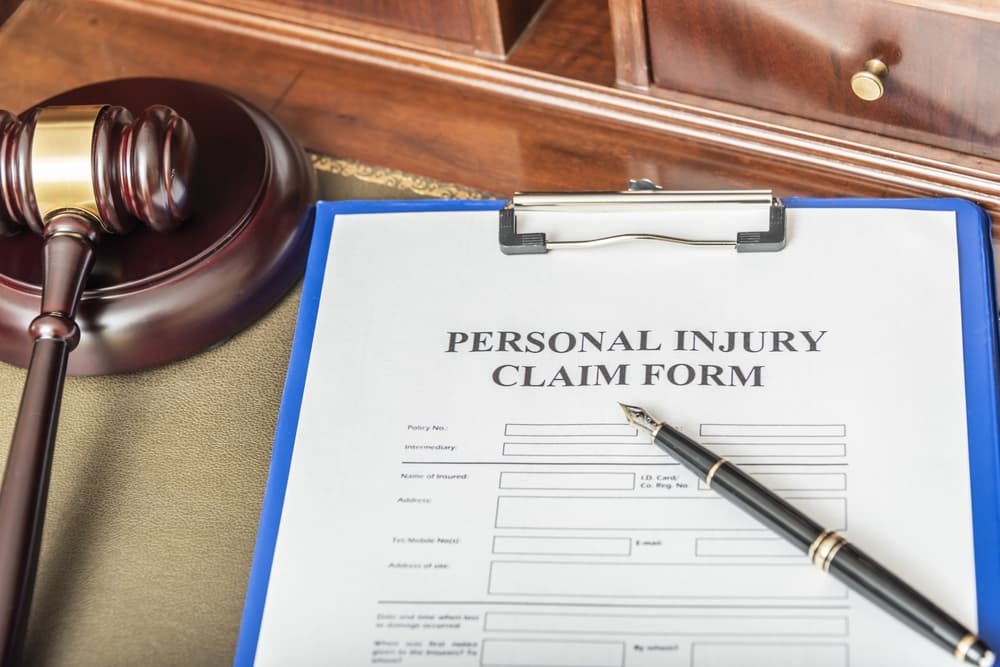When other individuals and entities, including property owners and drivers, behave negligently, they may cause accidents that lead to severe injuries. The value of a resulting personal injury claim or lawsuit depends largely upon the specific occurrence resulting from the negligence and the nature and extent of the victim's injuries.
One of the best ways to maximize the compensation you receive in a personal injury case is to retain skilled legal counsel as quickly as possible after the occurrence. A knowledgeable personal injury attorney can estimate your case's likely settlement or litigation value and take the necessary steps to pursue the financial recovery you need.
Factors that May Affect the Value of a Personal Injury Case
Various factors influence the total value of a personal injury claim or lawsuit, each playing an important role in determining the compensation sought. One primary factor is the severity and nature of the injuries sustained. The more severe and impactful the injuries, the higher the potential claim value. Factors such as the extent of medical treatment required, the duration of recovery, and any long-term consequences contribute to the overall case valuation.
Incurred medical expenses may also significantly affect the claim's value. This includes hospitalization, surgeries, medications, rehabilitation, and ongoing medical care costs. The total amount spent on medical care forms a substantial component of the available compensation in a personal injury claim or lawsuit.
Lost earnings due to the inability to work during the recovery period – or ongoing disability – are another critical factor. This calculation considers the actual income lost and factors in future lost earnings. Loss of earning capacity, particularly in cases of long-term or permanent disabilities, plays a substantial role in determining the overall value of the claim.
Non-economic damages, such as pain and suffering, emotional distress, and loss of enjoyment of life, contribute significantly to the total claim value. These damages acknowledge the intangible harm the victim experienced (they may continue to experience) because of their injuries.
The extent of liability on the part of the negligent party also influences the claim's value. Clear evidence establishing the other party's responsibility and negligence strengthens the case and may result in a higher compensation award.

The credibility and effectiveness of legal representation also play a role. An experienced personal injury attorney can navigate the legal complexities, negotiate effectively, and present a compelling case, influencing the outcome of the claim or lawsuit.
Insurance policy limits may also impose constraints on the total compensation available. If the at-fault party has limited insurance coverage, it may affect the maximum amount of compensation recoverable through the claim.
The jurisdiction of the case can also affect the total case value. Different regions may have varying legal standards, caps on damages, or jury attitudes that affect the potential compensation awarded.
Overall, the severity of injuries, medical expenses, lost earnings, non-economic damages, the extent of liability, legal representation, insurance policy limits, and jurisdiction actively influence the total value of a personal injury claim or lawsuit. Each factor contributes to the overall valuation, highlighting the complexity of determining fair and just compensation for the accident victim.
Common Injuries that Directly Result from Others' Negligence
Personal injury claims or lawsuits often involve various common injuries that can significantly alter the lives of those affected. Among these, physical injuries are prevalent, ranging from minor cuts and bruises to more severe conditions like fractures, sprains, and traumatic injuries. These physical injuries may necessitate extensive medical treatment, rehabilitation, and, in some cases, surgery to bring about recovery.
Soft tissue injuries, like strains and sprains, are also common in personal injury cases. These injuries affect muscles, ligaments, and tendons, leading to pain, swelling, and restricted mobility. Despite being less visible than fractures, soft tissue injuries can substantially affect the victim's daily life and may require long recovery periods.
Traumatic brain injuries (TBIs) represent another serious category of injuries in personal injury cases. These injuries can result from direct blows to the head or sudden acceleration and deceleration forces. TBIs may lead to a range of symptoms, including short-term and long-term memory losses, cognitive impairments, and changes in mood or behavior. Due to their potential long-term consequences, TBIs often result in significant claims for damages.
Back and spinal cord injuries are also common in personal injury cases. These injuries may cause chronic pain, limited mobility, or, in severe cases, full or partial paralysis. Victims may require extensive medical interventions, rehabilitation, and ongoing care to manage the effects of these injuries on their daily lives.
In addition to physical injuries, emotional and psychological distress are crucial aspects of personal injury claims. Victims often experience anxiety, depression, post-traumatic stress disorder (PTSD), or a diminished quality of life due to the emotional toll of the incident. These intangible injuries contribute to the overall effect of the claim and are important considerations when seeking compensation for the harm suffered.
Types of Occurrences that May Result from Others' Negligence
Negligence by others can give rise to a variety of occurrences, each with its own set of consequences:
- In premises accidents, negligent maintenance, or hazards can lead to slips, trips, and falls, causing injuries to property visitors or occupants. These incidents often result from poorly maintained surfaces, inadequate signage, or failure to address potential dangers on the property.
- Workplace accidents stemming from negligence are also common occurrences. While workers usually cannot sue employers, they can seek compensation from third parties who are negligent and cause injuries while they are on the job. Contractors, other drivers, and more can be liable for workplace injuries.
- Car accidents are a common result of negligent actions on the road. Distracted driving, reckless behavior, or failure to follow traffic rules can lead to accidents, causing serious injuries or fatalities. Victims of such occurrences may face physical injuries, property damage, and emotional distress.
- Pedestrian accidents often result from negligence, particularly by drivers who fail to yield the right-of-way or observe pedestrian crossings. These occurrences can cause severe injuries to pedestrians who, due to no fault of their own, find themselves involved in accidents with motor vehicles.
- Commercial truck accidents are some of the most terrifying incidents resulting from negligence. When a professional truck driver or trucking company is negligent, it can result in a devastating crash and severe injuries to many people. Often, multiple parties share liability for negligence in truck collisions.
Negligence by others can happen in various situations, and some forms of negligence are easier to identify than others. Each type of occurrence carries distinct risks and consequences, affecting individuals physically, emotionally, and financially.
Suppose you suffered injuries following any of these occurrences. In that case, an experienced personal injury lawyer can thoroughly investigate your circumstances and determine your eligibility for filing a personal injury claim or lawsuit. Their active investigation involves gathering evidence, assessing liability, and analyzing the extent of your damages. By doing so, your lawyer ensures that your case is built on a strong foundation, increasing the likelihood of a successful outcome and fair compensation for your injuries.
Ways of Successfully Resolving a Personal Injury Case
Successfully resolving a personal injury claim involves navigating various pathways, each with its considerations. One common approach is negotiating a settlement directly with the at-fault party's insurance company. This method often involves a series of discussions and negotiations to reach a mutually agreeable compensation amount. Settlement negotiations can be efficient, allowing the injured party to obtain compensation without undergoing the lengthy litigation process.
Alternatively, litigation presents a formal legal avenue for resolving a personal injury claim. Filing a lawsuit initiates the legal process, and both parties present their cases in court. Litigation also involves pre-trial procedures, including actively exchanging evidence and taking depositions. The case culminates in a trial where a judge or jury determines liability and assesses damages. While litigation can be more time-consuming and adversarial, it provides a framework for resolving disputes efficiently. It may be necessary if the parties cannot negotiate a fair settlement.
Pursuing alternative dispute resolution (ADR) methods, such as binding arbitration or mediation, offers another avenue for resolution. In binding arbitration, a neutral arbitrator reviews the evidence and renders a final legally binding decision for both parties. On the other hand, mediation involves a neutral mediator facilitating settlement discussions between the parties to reach a mutually acceptable resolution. ADR methods can be more flexible, cost-effective, and less adversarial compared to traditional litigation, making them attractive options for resolving personal injury claims.
Choosing the most appropriate resolution method depends upon the specific circumstances of a particular case. Settlements are often favored when the parties can reach a fair agreement efficiently. However, litigation may be necessary when there is a dispute over fault or damages that negotiations cannot resolve. ADR methods are particularly beneficial when parties seek a more collaborative and less aggressive approach to resolution.
Ultimately, the key to successfully resolving a personal injury claim lies in carefully considering the unique aspects of the case and selecting the most suitable method. Effective communication, a thorough understanding of legal rights, and strategic decision-making are essential regardless of the chosen resolution pathway.
An experienced personal injury lawyer can guide you in deciding between settlement or litigation in your case by thoroughly evaluating the pros and cons. They actively consider factors such as the strength of your case, potential compensation amounts, and the time and resources involved in each option.
Recovering the Damages You Need in a Personal Injury Claim

When pursuing a personal injury claim or lawsuit, injured accident victims may seek legal damages to address the losses they have endured. One significant category is economic damages, encompassing tangible financial losses directly associated with the incident. This includes medical expenses, loss of earnings, and loss of earning capacity.
Beyond economic damages, non-economic damages play a significant role in compensating victims for the intangible consequences of their accidents. Pain and suffering damages aim to address the physical and emotional distress resulting from injuries. This includes the immediate pain experienced, as well as the long-term effects on the victim's overall well-being, encompassing mental anguish, anxiety, and emotional trauma.
Compensation for loss of consortium recognizes the strain placed on personal relationships due to the injuries. Spouses may be eligible for damages if the accident diminishes the relationship's companionship, intimacy, or support.
Moreover, victims may seek punitive damages in certain circumstances. Unlike compensatory damages that aim to reimburse the victim for their losses, punitive damages are necessary to punish the at-fault party for particularly egregious negligence or intentional misconduct. The main goal of these damages is to deter similar behavior in the future, serving as a form of societal punishment.
Determining the appropriate amount of compensation for non-economic damages involves assessing the overall effect of the injuries on the victim's life. This comprehensive evaluation considers factors such as the severity of pain and suffering, emotional distress, and the long-term consequences affecting the individual's well-being.
An experienced personal injury lawyer in your area can evaluate the strengths of your case and determine that of these damages you may be eligible to recover. Your attorney can then aggressively advocate during settlement negotiations with the insurance company – or litigation – for a fair result that fully compensates you for your accident-related losses.
Contact a Personal Injury Lawyer in Your Area Right Away
Insurance companies and negligent parties will rarely pay you what you deserve without a fight. Usually, they will try to assert your accident claim is worth much less than it truly is. Never trust an insurance company’s assessment of your claim; get a professional opinion from a personal injury lawyer as soon as possible.
If you sustained injuries in an accident due to someone else's negligence, a skilled personal injury attorney in your jurisdiction can be an invaluable help. Your attorney will carefully guide you throughout the settlement and litigation processes, actively working to maximize your overall compensation. Their experience and advocacy can make a significant difference in ensuring that your rights are protected and that you receive fair

